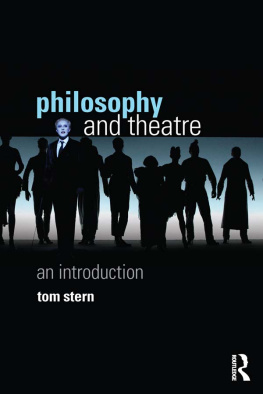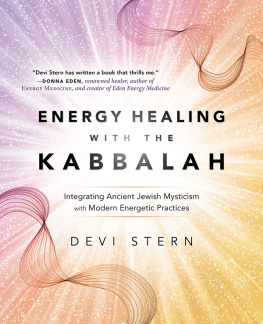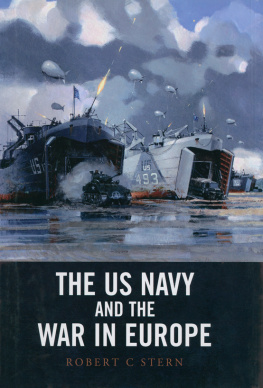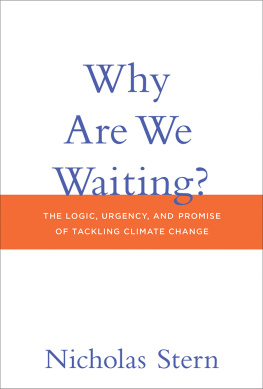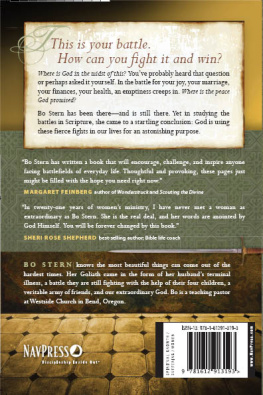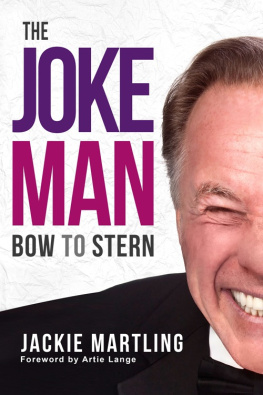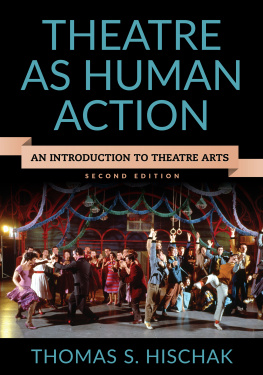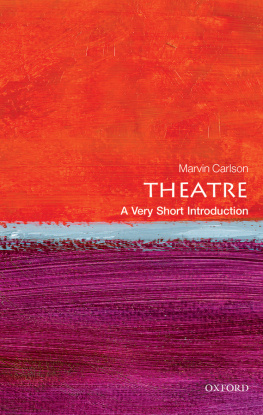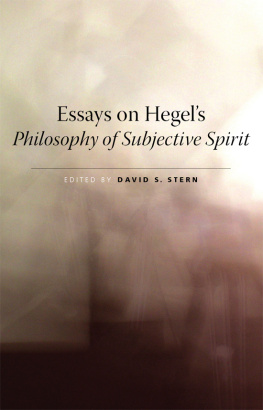Stern - Philosophy and theatre: an introduction
Here you can read online Stern - Philosophy and theatre: an introduction full text of the book (entire story) in english for free. Download pdf and epub, get meaning, cover and reviews about this ebook. City: Abingdon;Oxon, year: 2014, publisher: Taylor and Francis;Routledge, genre: Children. Description of the work, (preface) as well as reviews are available. Best literature library LitArk.com created for fans of good reading and offers a wide selection of genres:
Romance novel
Science fiction
Adventure
Detective
Science
History
Home and family
Prose
Art
Politics
Computer
Non-fiction
Religion
Business
Children
Humor
Choose a favorite category and find really read worthwhile books. Enjoy immersion in the world of imagination, feel the emotions of the characters or learn something new for yourself, make an fascinating discovery.
Philosophy and theatre: an introduction: summary, description and annotation
We offer to read an annotation, description, summary or preface (depends on what the author of the book "Philosophy and theatre: an introduction" wrote himself). If you haven't found the necessary information about the book — write in the comments, we will try to find it.
Stern: author's other books
Who wrote Philosophy and theatre: an introduction? Find out the surname, the name of the author of the book and a list of all author's works by series.
Philosophy and theatre: an introduction — read online for free the complete book (whole text) full work
Below is the text of the book, divided by pages. System saving the place of the last page read, allows you to conveniently read the book "Philosophy and theatre: an introduction" online for free, without having to search again every time where you left off. Put a bookmark, and you can go to the page where you finished reading at any time.
Font size:
Interval:
Bookmark:
The relationship between philosophy and theatre is a central theme in the writings of Plato and Aristotle and of dramatists from Aristophanes to Stoppard. Whereas Plato argued that playwrights and actors should be banished from the ideal city for their suspect imitations of reality, Aristotle argued that theatre, particularly tragedy, was vital for stimulating our emotions and helping us to understand ourselves.
Despite this rich history, the study of philosophy and theatre has been largely overlooked in contemporary philosophy. This is the first book to introduce philosophy and theatre. It covers key topics and debates, presenting the contributions of major figures in the history of philosophy, including:
what is theatre? How does theatre compare with other arts?
theatre as imitation, including Plato on mimesis
truth and illusion in the theatre, including Nietzsche on tragedy
theatre as history
theatre and morality, including Rousseau's criticisms of theatre
audience and emotion, including Aristotle on catharsis
theatre and politics, including Brecht's epic theatre.
Including annotated further reading and summaries at the end of each chapter, Philosophy and Theatre is an ideal starting point for those studying philosophy, theatre studies and related subjects in the arts and humanities.
Tom Stern is a Lecturer in Philosophy and the Academic Director of European Social and Political Studies at University College London, UK.
Philosophy and Theatre
An Introduction
Tom Stern

First published 2014
by Routledge
2 Park Square, Milton Park, Abingdon, Oxon OX14 4RN
Simultaneously published in the USA and Canada
by Routledge
711 Third Avenue, New York, NY 10017
Routledge is an imprint of the Taylor & Francis Group, an informa business
2014 Tom Stern
The right of Tom Stern to be identified as author of this work has been asserted by him in accordance with sections 77 and 78 of the Copyright, Designs and Patents Act 1988.
All rights reserved. No part of this book may be reprinted or reproduced or utilised in any form or by any electronic, mechanical, or other means, now known or hereafter invented, including photocopying and recording, or in any information storage or retrieval system, without permission in writing from the publishers.
Trademark notice: Product or corporate names may be trademarks or registered trademarks, and are used only for identification and explanation without intent to infringe.
British Library Cataloguing in Publication Data
A catalogue record for this book is available from the British Library
Library of Congress Cataloging in Publication Data
A catalog record for this book has been requested
ISBN13: 978-0-415-60450-5 (hbk)
ISBN13: 978-0-415-60451-2 (pbk)
ISBN13: 978-1-315-88751-7 (ebk)
Typeset in Garamond and Gillsans
by Taylor and Francis Books
For David, Joy, Rosalie, Sam with thanks.
PART I
From the World to the Stage
PART II
From the Stage to the World
My thanks, first of all, to those who gave me comments on the manuscript, the proposal or related material: Gabriel Doctor, Sebastian Gardner, Raymond Geuss, Lucy O'Brien, Sarah Richmond, Jonny Thakkar and the anonymous Routledge reviewers. On every page, I see improvements they made and, regrettably on my part, justified criticisms to which I have not done justice. This book has benefited enormously from conversations I've had with Harry Adamson, Michael Frayn, Rory Madden, Hugh Mellor, Vronique Munoz-Dard, Lydia Wilson and the students in my class on philosophy and theatre my thanks for their time. I am grateful to Tony Bruce and Adam Johnson at Routledge for their help and support. Various friends and family members have been kind enough to ask how the book was going (was it on something, theatre and something?), of whom some have been indulgent enough to listen to the answer. Without the hard work and support of my UCL colleagues academic and administrative, Philosophy and European Studies I doubt this book could have seen the light of day. Thanks, finally, for all this and more, to Andrea Haslanger.
Philosophy and theatre emerged from the same place at the same time: Ancient Greece in the 6th century BC. They are both Greek words: philosophy is the love of wisdom, theatre is the place for viewing. The first philosopher, Thales, died in approximately 546 BC. Little more than a decade later, Thespis, the first playwright, won his first prize, having reputedly invented acting (as we now understand it) along the way. Like many developing twins, philosophy and theatre had a complicated relationship. The case of Socrates is instructive. The earliest source we have for Socrates is his appearance as a character in Aristophanes' comedy, The Clouds indeed, that is the only source that dates from during his lifetime. But, in a changing political climate, the punishment for Socrates' philosophising and its perceived influence went from public ridicule to execution: Socrates was put to death for corrupting the youth and for not believing in the gods of the city the very things for which he had been mocked in Aristophanes' play.
While Socrates was still alive, so one source claims, he had worked together with Euripides to write tragedies; he had also convinced a young tragedian called Plato to give up writing plays and become a philosopher.the form of a dialogue, using the character of Socrates as his mouthpiece. Many scholars think that Plato's pupil, Aristotle, wrote his Poetics by way of a response to Plato's criticisms of theatre; certainly, Aristotle's Poetics was the single most influential theoretical treatise on theatre, interpreted and reinterpreted by modern European playwrights in many traditions and used to inform how they wrote their plays. It may be speculative but it really isn't very speculative to say that philosophy as we now know it would be unrecognisable without theatre and that theatre as we now know it would be unrecognisable without philosophy.
The case of Socrates also reminds us that the relationship between philosophy and theatre has ranged from highly antagonistic to highly collaborative often at the same time, even in the same person. Plato, who attacked the theatre, wrote his attacks in dialogue form; centuries later, Rousseau would criticise the theatre often adapting Plato's arguments but he would also make his name as a playwright. So, although it is easy to find philosophers condemning the theatre and playwrights mocking the pretensions of philosophers, it is just as easy to find plays that are informed by philosophical approaches and philosophers who are committed, in some way, to the theatre.
This book presents a series of philosophical topics, problems or questions that arise in relation to theatre and that, taken together, are meant to offer a comprehensive overview and introduction. My hope, in each case, is that readers will be presented with the main issues, that they will come to know where the principal contributors stand and that they will know where to look should they want to pursue these topics in more detail. I do not assume background knowledge in the academic study of philosophy or of theatre; hence, some material in this book may be familiar to students of philosophy although completely unknown to students of theatre, whereas the reverse is likely to be true for others. But for those with a background in theatre, the book should offer a grounding in the relevant philosophical discussions and the means to explore them further. And for those with a background in academic philosophy, the philosophical study of theatre these days given relatively little airtime compared with fine art, music, novels or films will require looking at otherwise unfamiliar topics and texts that bring to light new concerns or that cast new light on old ones.
Font size:
Interval:
Bookmark:
Similar books «Philosophy and theatre: an introduction»
Look at similar books to Philosophy and theatre: an introduction. We have selected literature similar in name and meaning in the hope of providing readers with more options to find new, interesting, not yet read works.
Discussion, reviews of the book Philosophy and theatre: an introduction and just readers' own opinions. Leave your comments, write what you think about the work, its meaning or the main characters. Specify what exactly you liked and what you didn't like, and why you think so.

